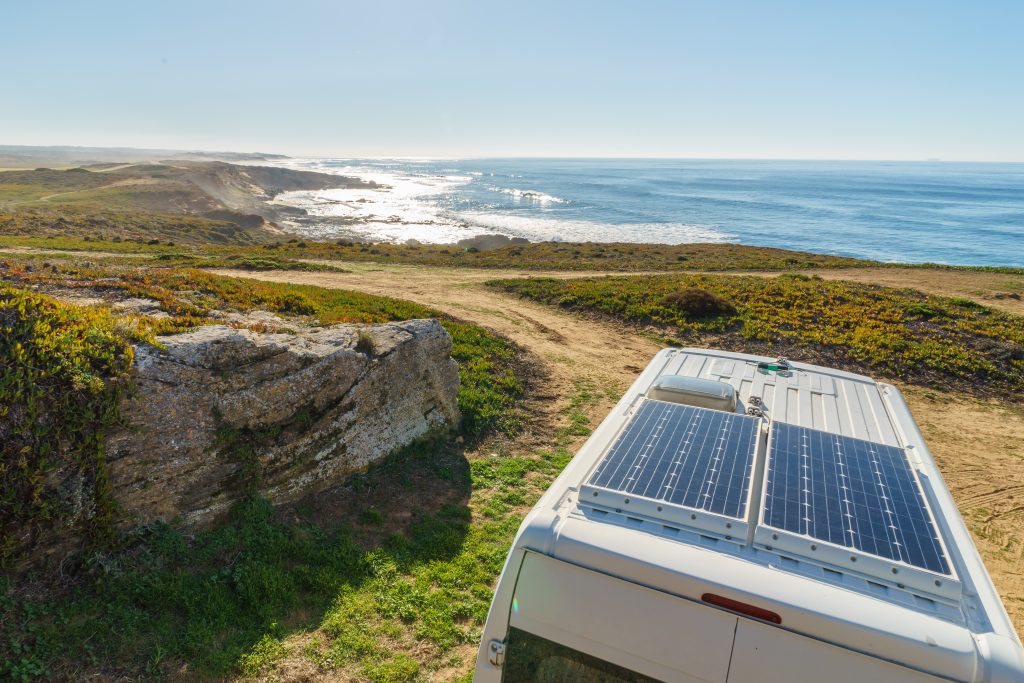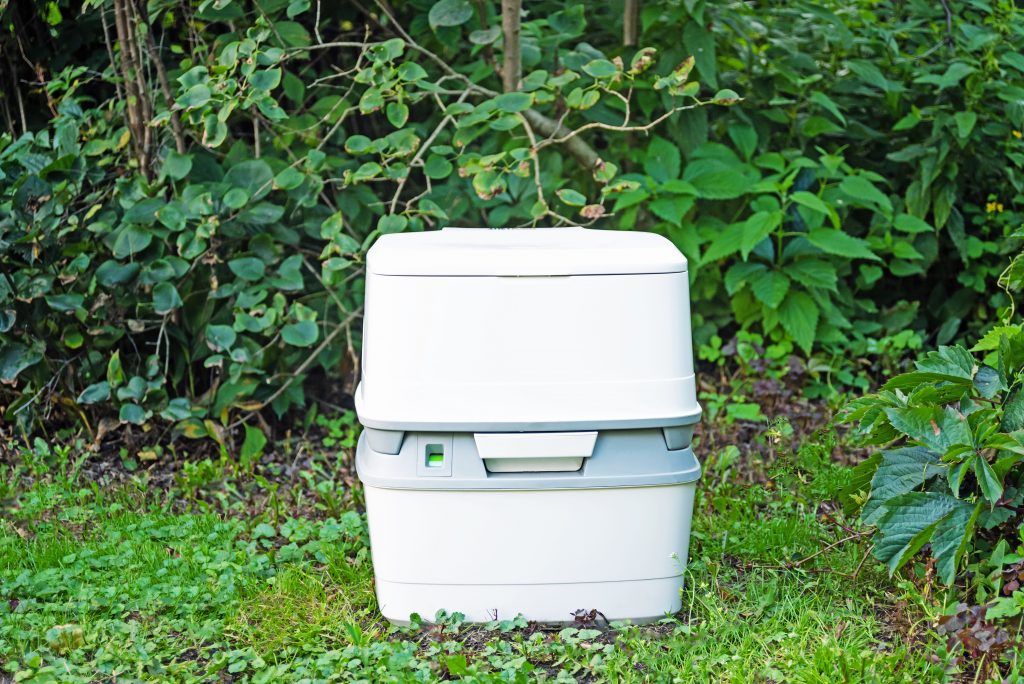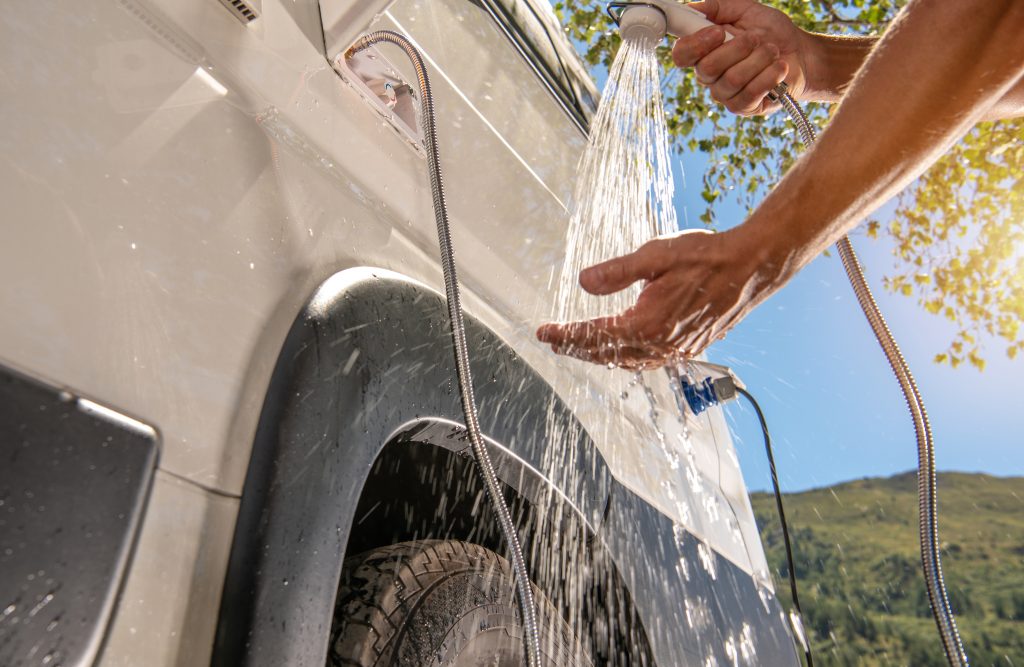Off-Grid RVing: 5 Essential Upgrades For 2024
Immerse yourself in the allure of nomadic lifestyle, liberate your spirit from the city’s shackles, and dive headfirst into the endless possibilities of off-grid RV travel. The right upgrades can transform an ordinary RV into an extraordinary, self-sufficient oasis on wheels.
Allow RVnGO to guide you through an enlightening journey as we unfold the top five, indispensable upgrades that guarantee the ultimate off-grid RVing adventure.
1. Solar Power System: Your Sustainable Energy Solution

One of the fundamental aspects of off-grid living lies in the efficient utilization of renewable energy sources. A solar power system stands out as an unmatched solution to satisfy your RV’s power needs without any strings attached.
A solar power system comprises multiple components, each playing a pivotal role in generating, storing, and converting the sun’s energy into a form your RV appliances can use.
Solar Panels
Solar panels act as the heart of your RV solar power system, absorbing sunlight and converting it into direct current (DC) electricity. They are typically installed on the RV’s roof, catching as much sunlight as possible during the day.
Charge Controller
Once the solar panels produce DC electricity, it’s the charge controller’s job to regulate the voltage and current coming from the panels. It ensures your battery bank is not overcharged, extending its lifespan and optimizing your solar energy storage.
Battery Bank
The battery bank is where all your harvested solar energy is stored. The size of your battery bank depends on your energy needs. The more appliances you have, the larger your battery bank should be to keep everything powered up even during cloudy days or at night.
Inverter
The energy stored in the battery bank is DC, but most RV appliances run on alternating current (AC). That’s where the inverter comes in. It converts DC electricity from your battery bank into AC electricity, making it usable for your RV appliances.
By installing a solar power system, you’re investing in a self-reliant, renewable energy source that reduces your carbon footprint and keeps your RV powered up wherever you go.
2. Composting Toilet: Off-Grid RVing Must Have

In the realm of off-grid living, it’s essential to have an eco-friendly and practical solution for waste management. This is where a composting toilet, a game-changing sanitation innovation, comes into play.
Unlike traditional RV toilets that require a significant amount of water and chemicals to function, composting toilets offer a more sustainable approach to dealing with waste. They work by separating liquid and solid waste, which substantially reduces odors and makes waste disposal more manageable.
The solid waste is mixed with a composting medium such as sawdust or coconut coir, which assists in breaking it down into nutrient-rich compost over time. The liquid waste is stored in a separate container, which can be easily emptied.
The benefits of a composting toilet in an RV are numerous. It significantly reduces water consumption, allows for extended periods between waste disposal, and generates compost that you can use in nature responsibly, always abiding by the Leave No Trace principles.
3. RV Cell Signal Booster: The Lifeline to the Outside World

Even while luxuriating in the serenity of the wilderness, maintaining a stable and robust cell signal is paramount for communication and safety. A high-quality RV cell signal booster becomes an invaluable tool, enhancing weak cell signals and ensuring you stay connected to the world even when nestled in the remotest corners of the wilderness.
Cell signal boosters function by capturing the existing weak signals from a nearby cell tower using an external antenna. These signals are then amplified and transmitted within your RV via an internal antenna, ensuring your devices receive a strong and reliable connection.
Not only does an RV cell signal booster provide the convenience of staying in touch with your loved ones and enjoying seamless internet connectivity, but it also serves as a lifeline in emergencies, when contacting the outside world becomes essential for your safety. Off-grid RVing is at its best when you’ve taken into account safety measures.
4. Lithium-Ion Batteries: Powering Your Journey with Superior Performance

In an off-grid scenario, the importance of an efficient, reliable energy storage system cannot be overstressed. Traditional lead-acid batteries may have been the go-to choice in the past, but the advent of lithium-ion technology has revolutionized the RV energy landscape.
Lithium-ion batteries offer several distinct advantages over their lead-acid counterparts:
- Higher Energy Density: Lithium-ion batteries can store more energy in the same amount of space, making them a compact and powerful energy solution for your RV.
- Longer Lifespan: Lithium-ion batteries are capable of handling more charge/discharge cycles, which significantly extends their overall lifespan.
- Rapid Charging: These batteries can be charged at a faster rate compared to lead-acid batteries, which means you spend less time tethered to a power source.
- Low Maintenance: Unlike lead-acid batteries that require regular maintenance, lithium-ion batteries are virtually maintenance-free, saving you time and effort.
By investing in a lithium-ion battery, you’re investing in a long-lasting, high-performance powerhouse that can meet the demanding energy requirements of your off-grid RV lifestyle.
5. RV Water Filtration System: Guaranteeing Pure, Safe Water On-The-Go

One of the essential aspects of ensuring a safe and comfortable off-grid lifestyle is access to clean, potable water. The installation of a comprehensive RV water filtration system ensures that wherever your journey takes you, purified water remains at your fingertips.
Water filtration systems for RVs work by eliminating harmful contaminants from your water source. These can range from heavy metals and chemicals to bacteria and particulates, depending on the system’s complexity.
A basic inline filter connected to your water hose can help reduce sediments and improve the taste and odor. For more extensive filtration, multi-stage systems use several types of filters to remove a broader range of contaminants. They often include a sediment filter, a carbon filter for chemical contaminants and improving taste and odor, and even a UV light to kill bacteria and viruses.
The investment in a robust RV water filtration system translates into consistent access to safe, healthy water for drinking, cooking, and hygiene. It offers peace of mind and guarantees your health is never compromised during your off-grid adventures.
Conclusion
Embarking on the journey of off-grid RVing is not just about surviving amidst nature’s elements—it’s about thriving in the heart of the wilderness. By choosing these top five upgrades for your RV, you’re setting the stage for a lifestyle of unmatched freedom, self-reliance, and sustainability.
Your RV, thus, becomes more than just a mode of transportation—it evolves into a home-away-from-home that caters to your every need. So, buckle up, set your sights on the horizon, and let the spellbinding world of off-grid RV living take you on the adventure of a lifetime.
FAQs
Q1: How much solar power do I need for off-grid RVing?
Depending on your energy consumption, the size and capacity of the solar power system will vary. You should consider key factors such as the power requirements of your appliances, how long you’ll use them, and the amount of sunlight typically available in your travel regions.
A solar energy professional can provide a detailed evaluation based on your specific needs.
Q2: Is it hard to maintain a composting toilet?
While a composting toilet does require different maintenance than a standard RV toilet, it’s not necessarily more difficult. Regular emptying of the waste compartments, replenishment of composting mediums, and ensuring adequate ventilation are some of the primary maintenance tasks. Each model comes with specific instructions that guide you through the process.
Q3: How can I test the effectiveness of my RV cell signal booster?
You can measure the strength of your cell signal before and after the booster’s installation using your phone’s settings or apps designed to measure signal strength. You usually notice a successful boost by an increase in bars on your device and a noticeable improvement in call quality and data speeds.
Q4: How often do lithium-ion batteries need to be replaced in an RV?
Lithium-ion batteries generally last longer than traditional lead-acid batteries. With proper care and usage, they can last anywhere from 5 to 15 years. However, how often you use them, the method of charging, and the storage conditions largely determine this.
Q5: How often should I replace the filters in my RV water filtration system?
The frequency of filter replacement depends on the type of system you have and the quality of the water you’re filtering. Most manufacturers provide guidelines for filter replacement.
As a general rule, you should replace inline filters every 3 to 6 months, and multi-stage system filters might follow different replacement schedules. Always refer to the manufacturer’s instructions to ensure optimal performance of your system.
What are your must-have essentials for off-grid RVing? Let us know in the comments below!